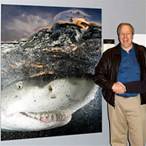题目内容
He undertook __________ the work by Monday.
A. to finish B. finishing C. finishes D. finished
A

 黄冈天天练口算题卡系列答案
黄冈天天练口算题卡系列答案It seems like every day there's some new research about whether our favorite drinks are good for us. One day, science says a glass of red wine a day will help us live longer. The next day, maybe not. It seems journalists are pretty interested in wine research and the same might be said for coffee. Now there's been a lot of research into whether coffee's good for our health "the results have really been mixed",admits Neal Freedman who led the coffee study and published his findings in a medical journal recently. "There's been some evidence that coffee might increase the risk of certain diseases and there's also been maybe more recent evidence that coffee may protect against other diseases as well".
Freedman and his colleagues undertook the biggest study yet to look at the relationship between coffee and health. They analyzed data collected from more than 400,000 Americans ages 50 to 70 participating in the study. "We found that the coffee drinkers had a modestly lower risk of death than the non-drinkers, he said. Here's what he means by "modestly": those who drank at least two or three cups a day were about 10 percent or 15 percent less likely to die for any reason during the 13 years of the study when the researchers looked at specific causes of death, coffee drinking appeared to cut the risk of dying from heart disease, lung disease injuries, accidents and infections.
Now, Freedman stressed that the study doesn't prove coffee can make people live longer .A study like this can never prove a cause-and-effect relationship. All it can really do is to point researchers in the right direction for further investigation. And even if it turns out that coffee is really good for you, scientists have no idea why.
【小题1】According to the first paragraph,reporters would like to know the research findings of_______.
| A. tea | B. beer | C. coffee | D. wine |
| A. Freedman and his colleagues hired 400,000 Americans to collect date. |
| B. People who took part in Freedman's research are about 50 to 70 years old. |
| C. About 400, 000 Americans worked for Freedman's team for 13 years. |
| D. People who are 50 to 70 years old seldom drink wffee. |
| A. have already proved that coffee is good for human health |
| B. have a long way to go before they find a way to study coffee |
| C. have avoided the cause-and-effect approach to study coffee |
| D. are still unable to figure out why coffee is good for us |
| A. The Magical Effects of Coffee |
| B. Neal Freedman and His Research |
| C. Can Coffee Help You Live Longer? |
| D. A Cup of Coffee A Day Makes Diseases Away |
 This award winning image shows the extraordinary moment when a lemon shark stared into a lens(镜头)with an obvious cheeky grin(露齿的笑). Showing a close-up of a lemon shark’s face on the surface at sunset, it was recently selected from more than 20,000 photos as winner of the Oceans division of the international Nature’s Best Photography 2008 Windland Smith Rice Awards.
This award winning image shows the extraordinary moment when a lemon shark stared into a lens(镜头)with an obvious cheeky grin(露齿的笑). Showing a close-up of a lemon shark’s face on the surface at sunset, it was recently selected from more than 20,000 photos as winner of the Oceans division of the international Nature’s Best Photography 2008 Windland Smith Rice Awards.